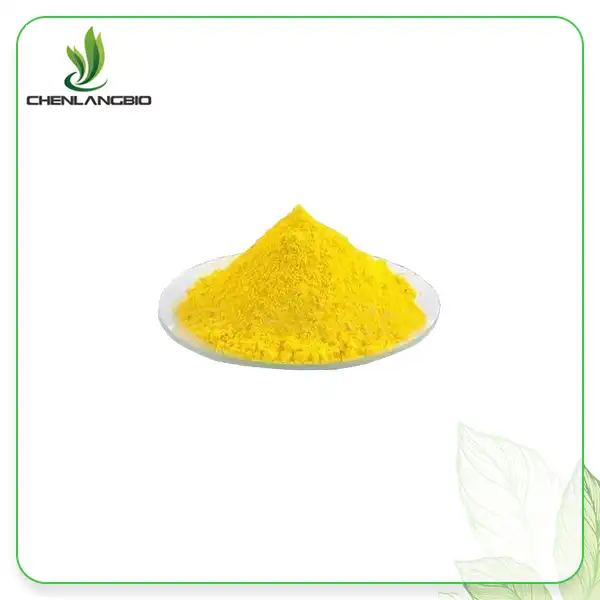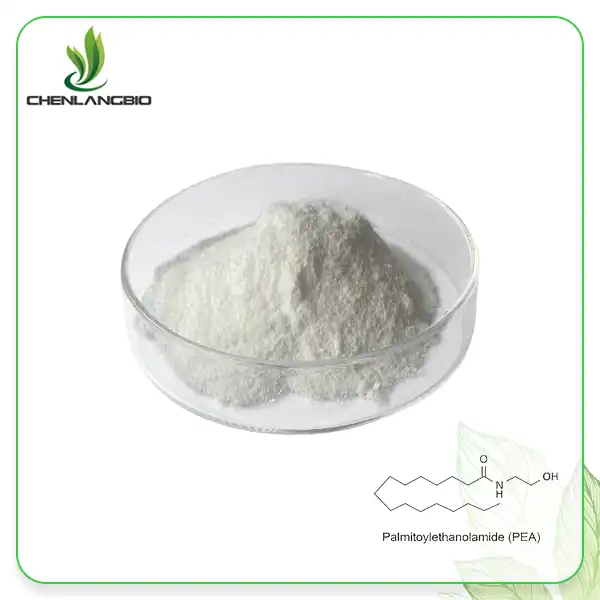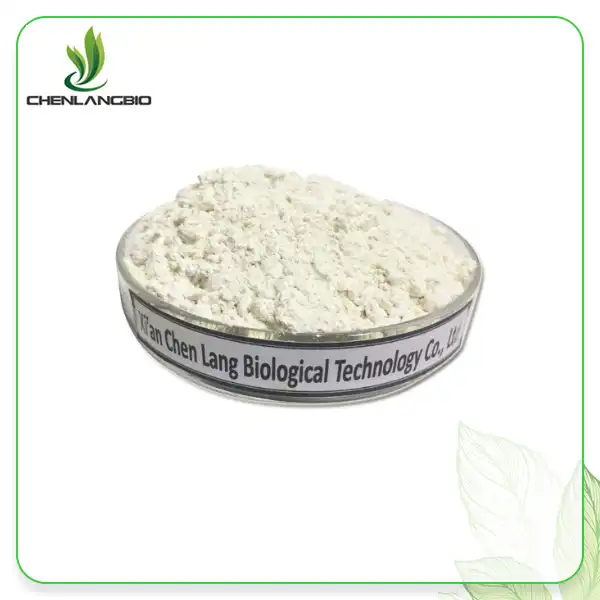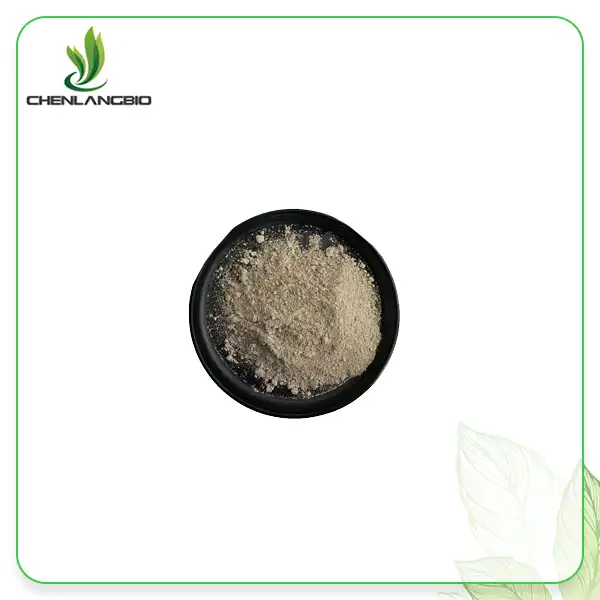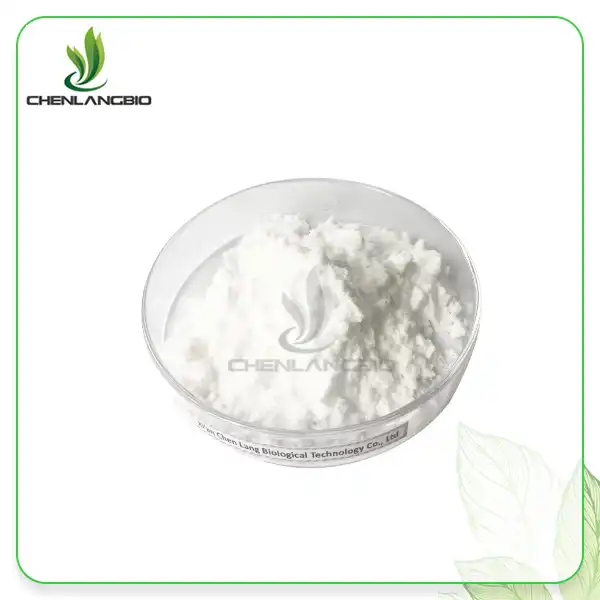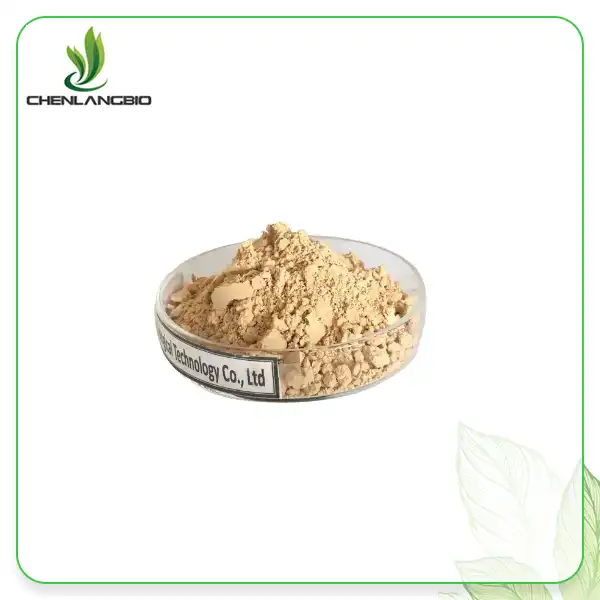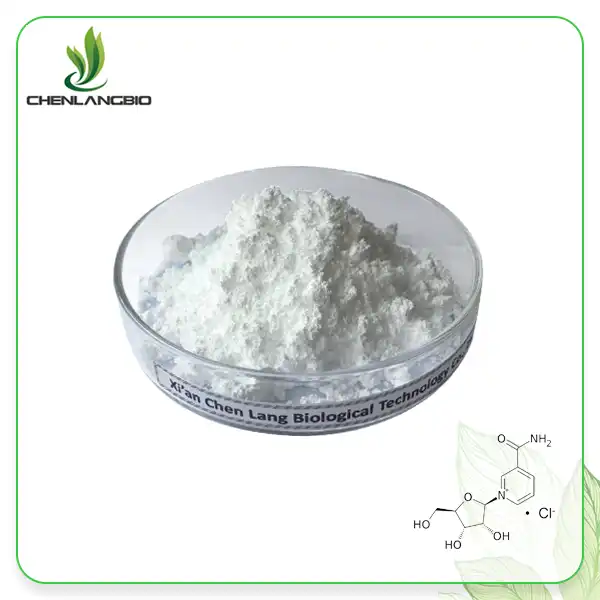PEA Powder
CAS: 544-31-0
MOQ: 1Kg
Package: 25Kg/Paper Drum, 1Kg/Aluminum Foil Bag
Stock: 500 Kg
Ship Time: Within 2~3 working days after you order
Payment Way: Bank Transfer, TT
- Fast Delievery
- Quality Assurance
- 24/7 Customer Service
Product Introduction
What is PEA (Palmitoylethanolamide)
Palmitoylethanolamide referred to as PEA powder is a fatty acid amide naturally found in a variety of foods and organisms. It has significant anti-inflammatory and analgesic effects. It is an endogenous lipid signaling molecule that is widely distributed in mammalian body tissues, including the brain, liver, and skin.
It is widely applied in sports nutrition supplements and joint health formulas worldwide, especially in the United States, Australia, UK, Canada, and EU countries like the Netherlands, Belgium, and Italy.
What Foods Are High In Palmitoylethanolamide

Palmitoylethanolamide (PEA) is a naturally occurring fatty acid amide that is present in various foods. While it is not abundant in any single food source, certain foods contain higher levels of PEA and can contribute to its intake in the diet. Here are some foods that are relatively high in palmitoylethanolamide.
Egg Yolks: Egg yolks are one of the richest dietary sources of PEA. Including eggs in your diet can help increase your intake of this compound.
Soybeans and Soy Products: Soybeans, soy lecithin, and other soy products such as tofu and tempeh contain significant amounts of PEA.
Peanuts: Peanuts and peanut butter are good sources of PEA. They are also high in healthy fats and protein.
Alfalfa: Alfalfa and alfalfa sprouts contain PEA and are often consumed for their various health benefits.
Legumes: Other legumes such as lentils, peas, and chickpeas also contain PEA, although in smaller amounts compared to soybeans.
Corn: Corn and corn-based products can contribute to dietary PEA intake.
Tomatoes: Tomatoes have been found to contain PEA, adding another reason to include this versatile vegetable in your diet.
While these foods do contain PEA, it is typically in small amounts. If you are looking to significantly increase your PEA intake for potential therapeutic effects, dietary supplements may be a more effective option. PEA supplements are available and can provide a concentrated dose of this compound.
Basic Information
Name | PEA Powder |
Other Name | PEA,Hydroxyethyl palmitamide,N-Palmitoylethanolamine,Palmidrol |
CAS | 544-31-0 |
Molecular Formula | C18H37NO2 |
Molecular Weight | 299.4919 |
EINECS | 208-867-9 |
Quality of Our PEA Powder:
★More than 99%
★Pharmaceutical Grade
★No Fillers
Palmitoylethanolamide Mechanism of Action
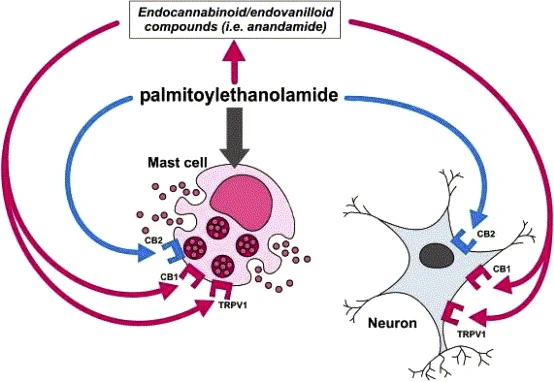
Anti-inflammatory mechanism
PEA reduces the inflammatory response by inhibiting the release of mast cells and other inflammatory cells, reducing the production of inflammatory factors.
Analgesic mechanism
PEA achieves analgesic effects by binding to specific receptors, regulating the activity of neurons and reducing the transmission of pain signals.
Neuroprotection
PEA helps protect nerve cells, reduce neuroinflammation and damage, and promote nerve repair.
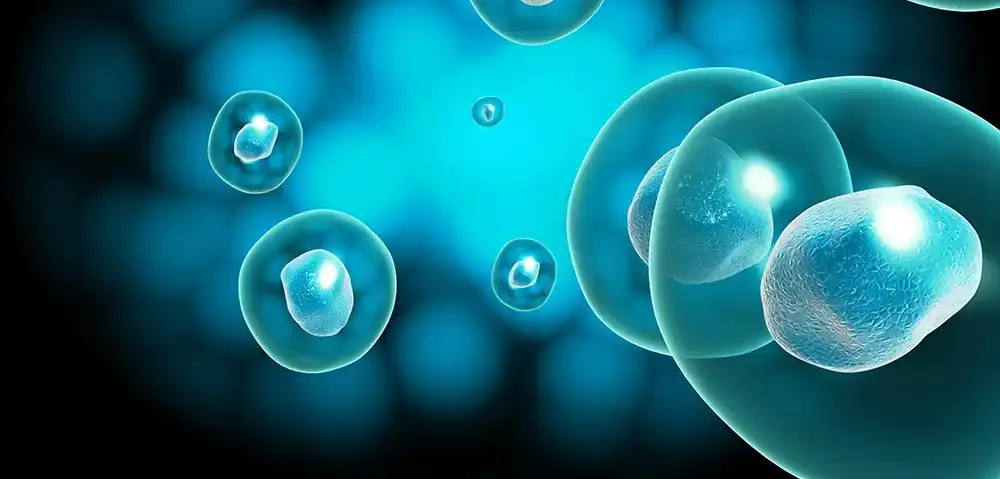
PEA Features
Naturally Occurring: Palmitoylethanolamide naturally occurs in the human body and many foods, such as soy lecithin, egg yolks, and peanuts.
Anti-inflammatory Effects: By interacting with endogenous cannabinoid receptors, it can modulate the immune system and reduce inflammation.
Pain Relief: PEA powder affects nerve cells to lower the transmission of pain signals, thus providing significant pain relief.
Palmitoylethanolamide Benefits
★Anti-Inflammatory Effects:
PEA is known to have anti-inflammatory properties. It can help modulate the immune response and reduce inflammation in various tissues. This makes it a potential candidate for managing inflammatory conditions.
★PEA Pain Relief:
PEA has been studied for its analgesic (pain-relieving) effects. It can interact with receptors involved in pain perception, potentially helping to alleviate chronic pain conditions.
★Neuroprotection:
PEA has shown neuroprotective properties, which means it may help protect nerve cells from damage and promote their survival. This could be relevant in conditions where nerve cells are at risk, such as neurodegenerative diseases.
★Immune Modulation:
PEA palmitoylethanolamide powder can influence the immune system, helping to balance immune responses and prevent excessive immune reactions. This property could be beneficial in autoimmune and inflammatory conditions.
★Skin Health:
PEA has been investigated for its potential benefits in various skin conditions, including eczema and dermatitis. It may help reduce inflammation and itching in these conditions.
★Mood and Anxiety:
Some research suggests that PEA might have an impact on mood and anxiety regulation. It could potentially influence neurotransmitter systems involved in mood and stress responses.
★Eye Health:
PEA has been explored for its potential in supporting eye health, particularly in conditions involving inflammation and damage to retinal cells.
★Anti-Allergic Effects:
PEA may have anti-allergic properties, which could make it useful in managing allergic reactions and conditions like allergic rhinitis.

Palmitoylethanolamide PEA Applications
Health products and nutritional supplements: PEA is widely used in health products and nutritional supplements to help relieve chronic pain and inflammation and improve immunity.
Medical research: It has important research value in the fields of neuroprotection, immune regulation and anti-inflammatory treatment.
Pet health care: PEA powder is also used in pet health products to relieve inflammation and pain in pets.
Palmitoylethanolamide PEA Safety and Side Effects
PEA is a natural compound, it is generally considered safe. A large number of studies have shown that PEA has fewer side effects, and no significant adverse reactions have been found with long-term use. However, before using any supplement, it is best to seek the advice of a professional doctor or nutritionist.
Packaging and Transportation
Since PEA powder is a chemical, its packaging and transportation need to follow strict specifications to ensure safety and efficacy.
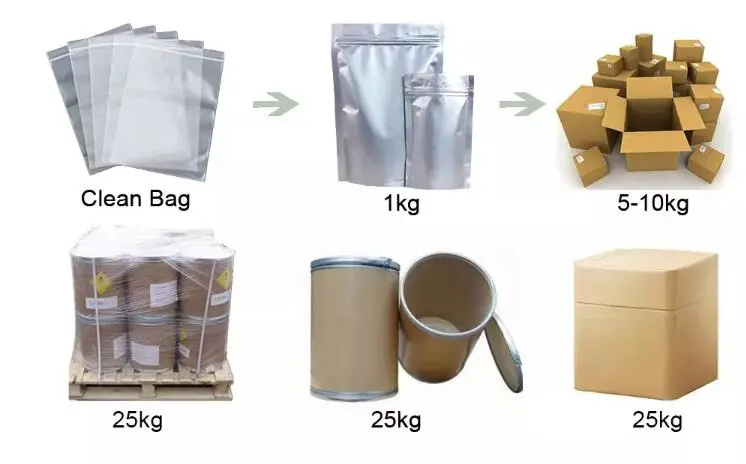
Package
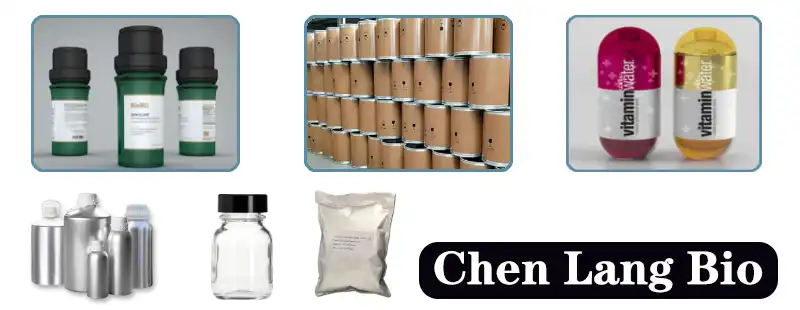
Usually use moisture-proof and light-proof sealed packaging, such as aluminum foil bags, plastic buckets or glass bottles, etc., to prevent moisture and photolysis.
The inner packaging is usually a double-layer plastic bag, and the outer packaging is a cardboard box or paper drum for enhanced protection.
Transportation
Direct sunlight, high temperature and humid environment should be avoided during transportation to maintain the stability of the medicine.
Storage
The storage environment should be dry, ventilated, and cool, and avoid mixing with flammable, explosive, and corrosive items. It usually needs to be stored in a cool, dry place.
Where to Buy PEA Powder
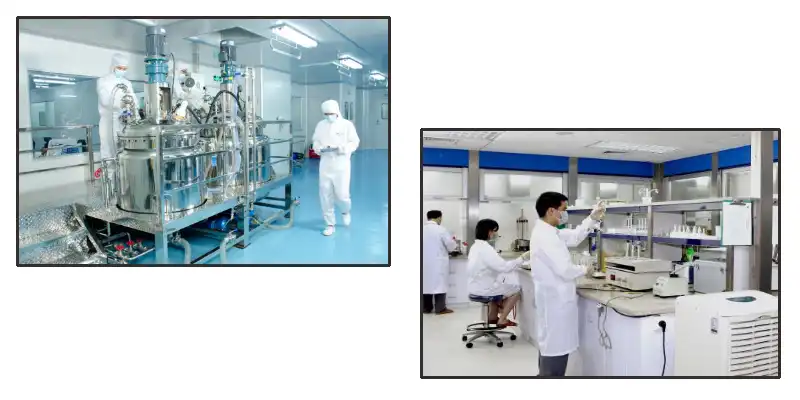
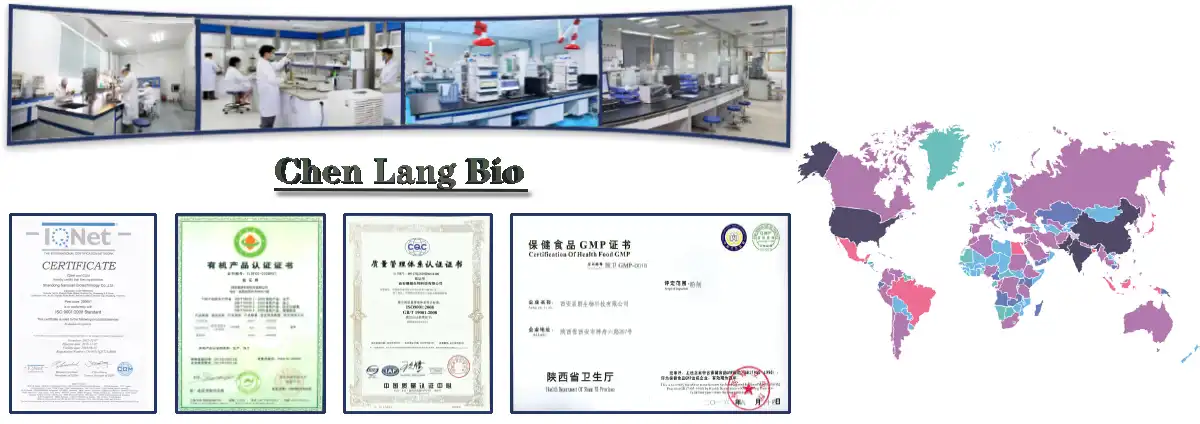
XI AN CHEN LANG BIO TECH is a a professional manufacturer of bulk PEA powder, we guarantee the quality of our powder, all powders can pass by “Third-Party”, we export to more than 100 countries, and get good feedback from our customers. Please send inquiry to email: admin@chenlangbio.com if you need more information.




